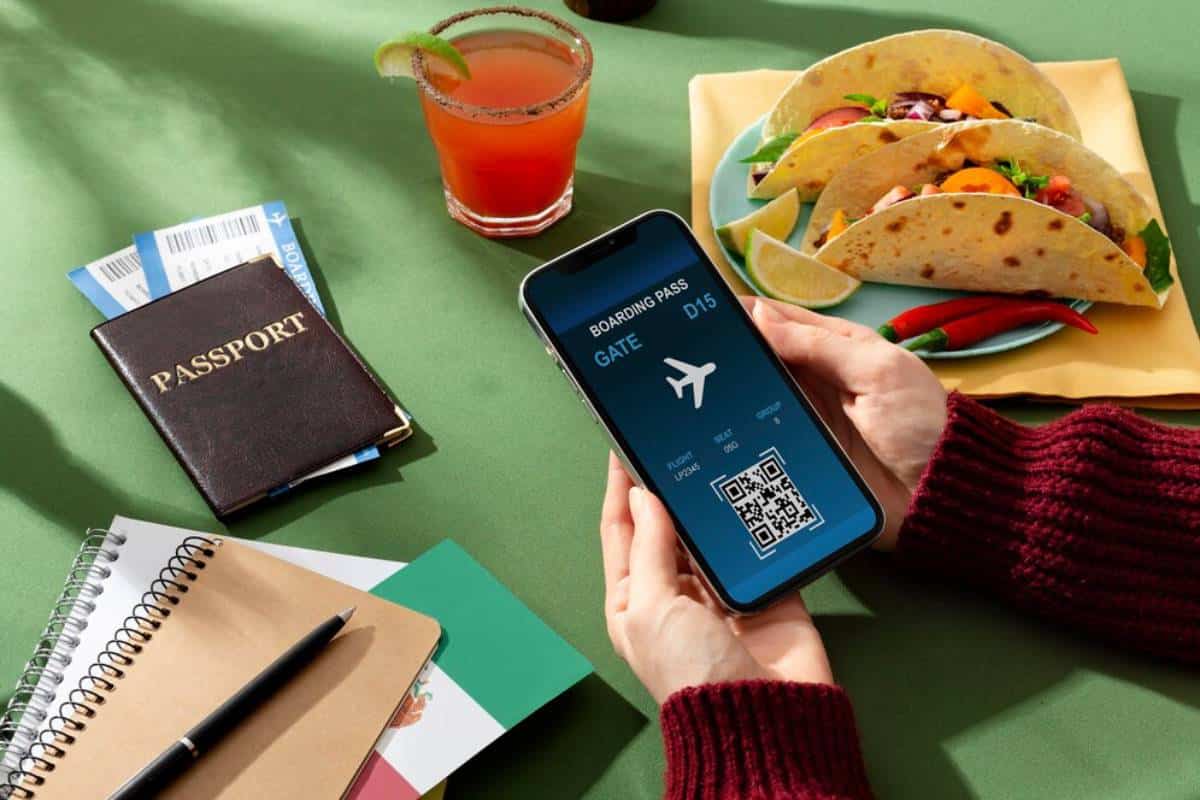
How Blockchain is Changing Hotel Bookings & Airline Tickets
The travel industry is undergoing a massive transformation, and blockchain technology is at the heart of this change. Imagine booking a hotel room or purchasing an airline ticket without worrying about hidden fees, delays, or fraud. Blockchain travel makes this real. It offers secure, transparent, and decentralized solutions. These solutions benefit both travellers and service providers.
More airlines and hotels are using decentralised bookings and accepting crypto payments. This makes travel faster, safer, and more efficient. But what exactly is blockchain, and how is it reshaping the travel industry? Let’s explore.
What is Blockchain?
Picture a decentralised digital ledger. It acts like a stronghold for data. This system records transactions on many computers. It keeps everything secure and clear. Once information goes into this digital vault, it can’t be moved. This gives a strong base of trust and accuracy.
Here’s how this intricate dance works:
- Blocks: Data comes together in compact, secure blocks.
- Chains: These blocks are interlinked, forming an unbreakable chain of trust.
- Verification: A network of computers checks each transaction. This process creates a strong defence against changes and hacks.
In travel, blockchain simplifies processes. It cuts down on middlemen and creates a safer experience for travellers.
How Blockchain is Transforming Hotel Bookings

1. Eliminating Middlemen with Decentralized Platforms
Booking platforms like Expedia and Booking.com can be costly. They charge high fees, which can lead to delays or mistakes. Blockchain booking platforms eliminate middlemen, linking travellers directly to hotel providers.
Benefits:
- Lower Costs: Slash transaction fees for more wallet-friendly rates.
- Greater Transparency: All booking info stashed on a secure ledger minimises disputes.
- Faster Transactions: Instant confirmations mean no more waiting for manual checks.
2. Smart Contracts for Secure and Automated Bookings
Smart contracts are self-executing agreements on the blockchain. They enforce terms as soon as conditions are met.
How They Work:
- A traveller secures a hotel room via a smart contract.
- Once payment is confirmed, automatic approval follows.
- If cancellation occurs within the allowable window, refunds are processed without delay.
Smart contracts minimise human error, paving the way for a seamless booking experience.
3. Preventing Double Bookings and Errors
Double bookings and overbooked hotels can turn a dream vacation into a nightmare. Blockchain acts as a digital guardian. It records booking data in real-time. This way, it makes sure the same room isn’t sold twice.
Blockchain’s Impact on Airline Ticketing
1. Seamless and Fraud-Free Ticketing
Airline ticket fraud lurks in the shadows, preying on traditional booking methods. Blockchain steps into the limelight, crafting an unbreakable record of every ticket transaction.
Benefits:
- Reduced Fraud: Each ticket’s authenticity is verified, keeping counterfeits at bay.
- Secure Digital Wallets: Safeguard tickets in a digital wallet to prevent losses or theft.
- Instant Verification: Airlines can quickly validate tickets, smoothening the flow at check-in.
2. Dynamic Pricing with Greater Transparency
Airline ticket prices fluctuate like the wind, and road trips can be time-consuming, dictated by demand, season, and multiple factors. Blockchain illuminates this process, recording price changes in real-time. Travellers can scrutinise pricing trends to make savvy decisions.
3. Streamlined Loyalty Programs and Rewards
Frequent flyer programs often resemble a tangled web. Blockchain untangles the mess, allowing:
- Tokenised Rewards: Travelers earn digital tokens, redeemable with ease.
- Unified Loyalty Platforms: Multiple airlines can collaborate for a seamless loyalty experience.
Crypto Payments: The Future of Travel Transactions
1. Paying for Hotels and Flights with Cryptocurrency
As blockchain grows, hotels and airlines are accepting crypto payments more. This includes Bitcoin, Ethereum, and others. Travellers can now book their adventures using digital currencies, sidestepping traditional banking fees.
Why It’s Better:
- Lower Transaction Costs: Crypto alleviates bank fees and currency conversion headaches.
- Faster Processing Times: Transactions zip through almost instantly, no matter the location.
- Increased Privacy: Crypto shields personal financial data from prying eyes.
2. Reducing Foreign Exchange Hassles
Travelling abroad often means grappling with currency exchange rates and fees. Crypto payments make things easier, turning the world into a playground for digital currency.
Advantages of Blockchain Travel for Travelers
1. Increased Security and Privacy
Blockchain encrypts sensitive data, fortifying travellers against breaches and identity theft. You can trust that your personal information remains hidden from prying eyes.
2. Faster and Smoother Transactions
With blockchain, transactions are triggered swiftly and efficiently. Whether booking a room or snagging a plane ticket, travellers can say goodbye to manual confirmations.
3. Greater Transparency and Trust
Every transaction is etched on the blockchain, crafting a transparent ledger of interactions. Travellers can rest assured they’re receiving trustworthy information.
Challenges and Concerns in Blockchain Travel
1. Regulatory Uncertainty
As blockchain evolves, regulations often lag behind. Countries wield different rules about cryptocurrency and blockchain in travel, leaving both providers and travellers in a fog of uncertainty.
2. Technical Barriers and Adoption
Despite its many advantages, blockchain’s widespread adoption faces hurdles. Many travellers and service providers may still grapple with the technology, slowing the shift to decentralised bookings.
3. Energy Consumption and Environmental Concerns
Blockchain networks, particularly those on proof-of-work protocols, consume vast energy resources. This poses questions about the environmental footprint of embracing blockchain in travel.
The Future of Blockchain in Travel

1. Decentralized Travel Platforms on the Rise
As blockchain matures, expect a surge of decentralised travel platforms that empower travellers to book flights and hotels without intermediaries.
2. Integration with Artificial Intelligence (AI)
Artificial Intelligence and blockchain will dance together, crafting personalised travel experiences. AI analyses preferences, while blockchain ensures rigorous data security.
3. Mainstream Acceptance of Crypto Payments
As digital currencies become popular, many airlines and hotels may accept crypto payments. This gateway will facilitate worldwide payment ease for travellers.
How Travelers Can Prepare for Blockchain Travel
1. Get Familiar with Crypto Payments
Hone your skills in using and securing cryptocurrencies in digital wallets. Dive into the most popular digital currencies for travel.
2. Explore Blockchain-Based Booking Platforms
Seek out platforms harnessing blockchain technology for secure, transparent, and efficient travel services. Better prices and diminished hassles await.
3. Stay Informed About Regulations
Keep an eye on how countries handle blockchain and cryptocurrency rules when travelling. This helps avoid legal issues.
Conclusion: Embracing a New Era of Travel
Blockchain travel is revolutionising the way we book hotels and buy airline tickets. Decentralized bookings and secure transactions offer travellers more transparency and safety. Plus, crypto payments make their journeys easier.
While challenges remain, the benefits of blockchain far outweigh the drawbacks. Blockchain travel is becoming the new standard. Technology is changing, and more people are using it. If you fly often or plan a vacation, blockchain technology can make your travel easier and safer.
The future of travel is here—powered by blockchain!


